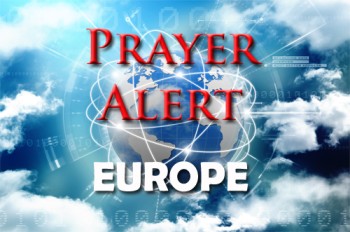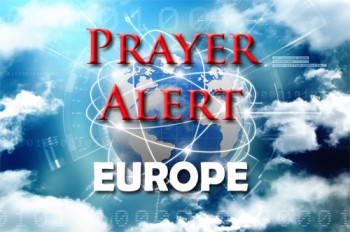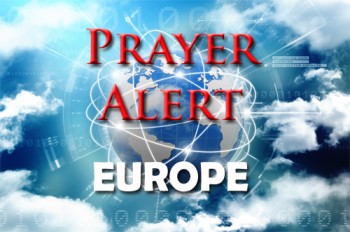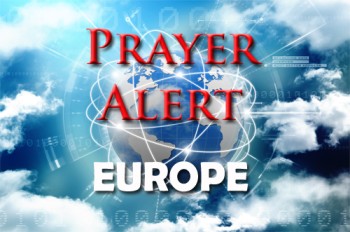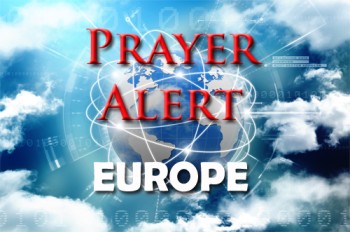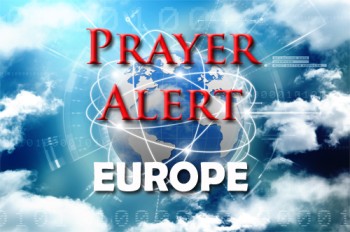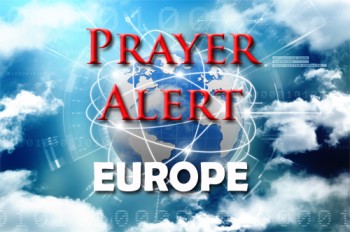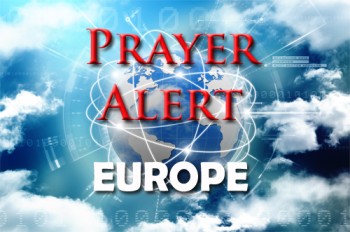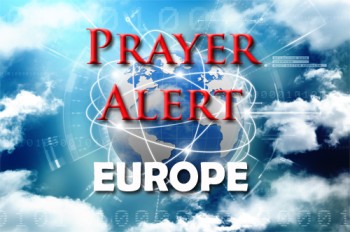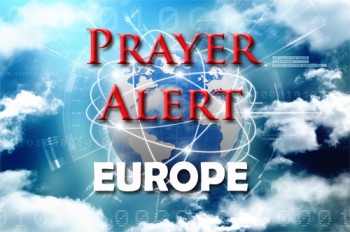Displaying items by tag: Europe
Portugal: voter frustration as another election is called
Voters in Portugal are growing frustrated as another snap election looms, with little hope for stability. Prime minister Luis Montenegro’s centre-right government collapsed after losing a confidence motion, forcing the president to call a new parliamentary election, probably in May. This will be the third election in three years. Many believe the political elite have failed for decades and fear worsening instability. One political analyst has warned the election may produce another inconclusive result, leading to continued uncertainty. Opinion polls show the centre-left Socialists and Montenegro’s Democratic Alliance (AD) in a deadlock at around 30%. While the political right holds a majority, AD refuses to work with the far-right Chega party. Voter discontent is high, with concerns about low turnout. Montenegro denies wrongdoing after his business dealings triggered the crisis. Meanwhile, citizens fear government inaction will further harm the nation.
Ukraine / USA: first all military aid, now intelligence sharing is paused
Donald Trump’s administration has reportedly halted, at least partially, intelligence sharing with Ukraine, a move that could severely impact Kyiv’s defence against Russia. National security adviser Mike Waltz and CIA Director John Ratcliffe confirmed a pause is in place, suggesting it might be lifted if Ukraine takes steps toward negotiations. The intelligence freeze follows a suspension of US weapons deliveries, aimed at pressuring Ukraine into a peace deal. Volodymyr Zelensky has signaled a willingness to negotiate, and renewed talks between US and Ukrainian officials are expected soon. However, critics warn that cutting intelligence and military aid ‘pretty much guarantees a Russian victory without there needing to be a peace deal’. Meanwhile, concerns remain over whether the administration or Elon Musk will continue allowing Starlink, a vital communication tool for Ukraine. Some US military and intelligence officers feel that ‘we are abandoning our allies on the battlefield’.
Germany: conscription to be reintroduced?
Germany’s conservative leaders have argued that the country should quickly reintroduce compulsory military service. Friedrich Merz, leader of the new CDU/CSU government, argues that Europe must take greater responsibility for its defence, especially given NATO’s uncertain future. Defence spokesman Florian Hahn says the suspension of conscription ‘no longer fits the current threat situation’, and wants to see new conscripts before the end of 2025. Merz also supports a mandatory year of military or community service to strengthen personnel numbers. While conscription remains controversial, cross-party support for it is increasing. A new system, put in place by the previous government, will require 18-year-old men to complete a questionnaire about their interest in the army and their physical condition; for women it will be optional. A contingent of men and women will then be invited to a selection process. Without immediate action, Germany’s armed forces risk severe shortages in the coming years.
Ukraine / USA: Trump says Zelensky will sign mineral resources agreement
Donald Trump is to meet Volodymyr Zelensky in Washington on 28 February to sign a preliminary agreement on sharing Ukraine’s mineral resources. While Trump touts the deal as a way for the USA to recoup aid given to Ukraine, Zelensky is seeking broader agreements, including security guarantees. However, Trump has ruled out significant US commitments and dismissed Ukraine’s NATO ambitions, saying European nations should bear more responsibility for Ukraine’s security. He also suggested a ceasefire deal was near, with European peacekeepers stationed in Ukraine - an idea Russia opposes. The mineral deal remains vague, but Ukraine hopes it will bring investment for reconstruction. There are warnings that Ukraine first needs to address its problem of unexploded landmines before striking a deal: a quarter of the country is estimated to be contaminated with them. Meanwhile, Vladimir Putin has reportedly offered the USA access to minerals from Russian-occupied Ukrainian territory. In an earlier development, the USA voted against a UN vote condemning Russia’s invasion of Ukraine: see
Germany: chancellor-elect criticises Trump, struggles to form coalition
Following the 23 February election, Christian Democratic Union (CDU) leader Friedrich Merz has criticised Donald Trump, calling for European defence independence. He warned that NATO’s future was uncertain and called for urgent action on European security. Despite strong rhetoric, his party won only 28.6% of the vote - its weakest victory since 1949. He is negotiating a coalition with the Social Democratic Party (SPD), led by Olaf Scholz, but deep divides remain. Merz favours arming Ukraine, reviving nuclear energy, cutting welfare, and maintaining Germany’s constitutional deficit ceiling, while Scholz has resisted sending missiles to Ukraine and advocates loosening fiscal constraints. Immigration is another battleground, with Merz pushing to curb family reunification. Germany’s role in NATO, economic policy, and military spending hang in the balance as these leaders attempt to bridge their stark differences. The election results, especially the strong showing by the far-right party AfD, highlighted the deep divide between East and West Germany: see
Ukraine: Russia refuses to accept NATO peacekeepers
At high-level talks with the USA in Saudi Arabia, foreign minister Sergei Lavrov has declared that Russia will not accept NATO peacekeeping forces in Ukraine under any peace agreement. The discussions marked the first known face-to-face meeting between Russian and American delegations since the invasion began. Both sides agreed to appoint teams to negotiate an end to the war, which US secretary of state Marco Rubio called a significant step. Ukraine was not invited, prompting Volodymyr Zelensky to express frustration over decisions being made without his country's involvement. European leaders held emergency talks in Paris but failed to reach a unified response to the negotiations. While the UK suggested a security presence in Ukraine, Germany and other European nations opposed the idea. Zelensky, visibly tired and upset, will also know that his country's chances of resisting - let alone defeating - Russian troops without American help are very slim.
Poland: a response to Vance’s criticism of European leaders
Former foreign minister Radosław Sikorski has responded to US vice-president JD Vance’s critique of Europe regarding migration and free speech. Vance, speaking at the Munich Security Conference, criticised European leaders for disregarding the will of their citizens, undermining elections, and failing to protect religious freedoms. He also questioned Britain's abortion laws and Romania’s recent election, calling for a reassessment of Europe’s approach to these challenges. Sikorski remarked that while Vance’s speech leaned more towards a philosophical one than one that was security-focused, he agreed on the need for greater European defence spending. He emphasised that the global security situation is changing, with rising threats, especially due to Russia’s actions.
Vatican: Pope Francis suffering from pneumonia
After being admitted to hospital on 14 February, Pope Francis has developed pneumonia in both lungs, and his condition remains ‘complex’. The 88-year-old pontiff has been battling a respiratory infection for over a week. A follow-up CT scan confirmed bilateral pneumonia, prompting adjustments to his treatment. Despite the serious nature of his illness, the Vatican reports that he remains in good spirits, spending time reading, resting, and praying. Francis' history of lung complications, including pleurisy and a partial lung removal in his youth, makes him particularly vulnerable to such infections. His illness has raised concerns over the upcoming Holy Year, a major Catholic ‘jubilee’ event expected to draw millions to Rome in 2025; uncertainty looms over his ability to fulfil his demanding schedule. See
Ukraine: Hegseth defends Trump’s phone call to Putin
US secretary of state Pete Hegseth has defended Donald Trump’s push for peace talks on Russia’s war in Ukraine, insisting it was not a betrayal of Kyiv. Speaking before a NATO meeting in Brussels, Hegseth emphasised the need for a negotiated peace but called Ukraine’s demands - restoring pre-2014 borders and NATO membership - ‘unrealistic’. Trump later confirmed he had spoken with Vladimir Putin, agreeing to initiate negotiations without prioritising territorial concerns or Ukraine’s NATO bid. European leaders voiced concern, fearing premature concessions could embolden Russia. Hegseth asked NATO allies to ramp up defence spending to 5%, a target the US itself does not reach. Volodymyr Zelensky, after speaking with Trump, reiterated his commitment to securing peace while ensuring Ukraine’s security. Questions remain over whether Moscow will accept a deal that meets Kyiv’s conditions. Trump’s advisers are set to meet Zelensky at the Munich security conference to discuss next steps.
Sweden: woman sentenced for war crimes against Yazidis
Lina Ishaq, a 52-year-old Swedish woman, has been sentenced to twelve years in prison for genocide and war crimes against Yazidis in Syria. She enslaved three Yazidi women and six children in Raqqa between 2014 and 2016, forcing them to wear veils, practise Islam, and endure physical abuse. This is Sweden’s first conviction related to IS crimes against Yazidis, a religious minority targeted for extermination. In 2014, IS launched a brutal campaign against them, killing 5,000 and enslaving thousands more. Ishaq, originally from Iraq, moved to Sweden as a child but later converted to Islam and joined IS in 2013. She fled to Turkey after IS collapsed and was extradited to Sweden in 2020. Sweden’s Yazidi community (numbering about 6,000) sees the conviction as a step toward justice, though Ishaq denies the charges and may appeal.
